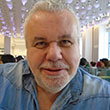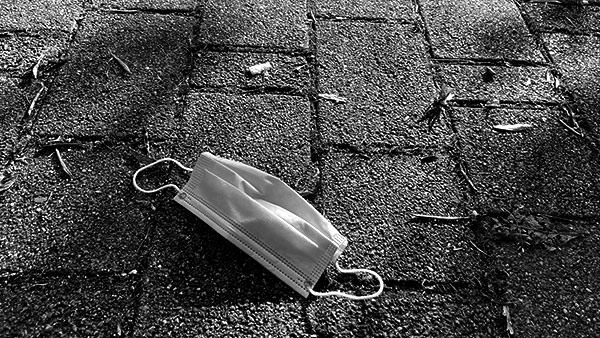With less than 10 years left to meet the United Nations Sustainable Development goals Rob Hayles FRSA asks whether it is time to think again; not about giving up but whether we must start from a better base. He argues that we urgently need to think and act now in terms of regenerative goals.
We have always lived in our own social bubbles but have we thought how this affects and changes the people, places and ecology in other and wider bubbles? Until the stark realities of environmental and human impacts have been realised for us individually, we have been ignorant, or chose to be ignorant, to the negative impacts. Sustainability can be described as ‘improve today without harming tomorrow’ whereas regenerative is ‘improve today and tomorrow’, which fits with the timescales we have. We have left it too late just to be sustainable. We need to do better; we need a better theory on life. It is time for Regenerative Development Goals that influence our thinking, leadership, husbandry, and development.
Regenerative living is not new. We had a regenerative past until industrialisation at scale, imperial expansions and racial and sexual power inequalities subjugated people, places and ecology. We left a life of inter-being, where people, places and nature affected each other in dynamic balance, for profit and plenty. We normalised the search for power and lucrative outcomes for the few over positive impacts and negative impact resolution for all. This has become a habit.
We all have experiences, expertise and roles to play in generating a regenerative life for ourselves, our social bubble, for the people, places and ecology we know and don’t know, as well as the world as a whole. By thinking we are nodes with connections, nested in fields of collective intelligence, collective behaviours and collective actions, interweaved with the other fields, we have the network of networks that gain and disseminate the knowledge, expertise and potential needed to create regenerative lives now and for all our tomorrows.
By changing our focus from the ego-centric to the eco-centric we allow ourselves the freedoms to see, think, and act differently and provide the catalyst for positive impacts. We can see the boundaries that ego sets, go past the liminal and into the whole to create holistic positive impacts and reduce the negatives.
If we take off the blinkers of human-centred design and replace them with the multi-lenses of eco-centred design, we can maintain a spotlight on the human as a part of nature but add the agencies of place and ecology into the equitable balance of our lives for the good of our progeny.
We need a prescient design methodology that uses the past and present to see the future in the round and we need a development model that is more than sustainable. By setting goals as ego- or human-centred we will deny all others and by focussing on values, such as Gross Domestic Product, we will deny the ability to strive and thrive for the many so that the few have plenty.
The answers to how we gain an equitable life are simple but the way we develop them, if we choose to, is not. We can choose to be ignorant or we can act to be regenerative. We can choose the comfort of sustainability and see ourselves as heroes or go incrementally further and be regenerative.
We can only become truly growth agnostic if we succeed embedding a social value structure in the economy model. This means becoming truly socially adaptive and distributing by design (by moving data and knowledge rather than products), embracing dynamic complexities and giving agency to all people, places and ecology. Only then will we become regenerative by design and by culture.
Our beliefs in economics, society and life are individual but have become normalised and habitualised. They are personal in nature, political in consequence, privately held and little discussed until we are given the freedoms that a forum such as the RSA grants. Let’s not take it for granted.
If we develop a sharing economy where a street of 20 houses with gardens share the tools for do-it-yourself and tending the lawn we could buy better equipment and maybe provide a local job to maintain the equipment and do the work. If we sent the knowledge and plans for a product across the world rather than the product, we would save money, reduce the carbon footprint, and provide local jobs. For example, the construction industry is beginning to employ regenerative design rather than sustainable design where the concept of ‘do no additional harm’ or “use only what you need, and no more’ is replaced by ‘use and replace’.
These positive impacts outweigh the negatives especially if the owners of the knowledge and the companies making the goods change their business models. Not only does this expand the circular economy it takes sustainability into regenerative practices.
If there is one insight we should take from pandemic life, and life in general, it is that our behaviours start, fuel and increase the negative effects on the world and we must find a way to stop not just pandemics but the collective behaviours that allow them to happen. Some communities have kept or rediscovered regenerative practices and we could learn from the Regenerative Agriculture of New Zealand based on partnership with Māori to transform the land-use sector in ways that honour the principles of partnership, participation and protection.
In making these kinds of approaches the norm, the biggest difficulty is the will to do it. Economies, politics and some people in power have normalised our behaviours to be wasteful or given us the reassurance of sustainability to hide behind. Sustainable goals are a good start but we have run out of time. We have the knowledge but have not developed the wisdom to create the positive impacts needed. We all need to become the agents of regeneration not bystanders or contributors to our downfall.
It is not too late and we do need a sense of urgency, not resignation. We need debate that creates action not inertia. It starts here and now, with all of us individually and collectively.
Rob created Citizens with Experience with other RSA Fellows after a career in the construction industry. His experience of mental health issues led to a Fellowship in Collaborative Leadership in Applied Health Research and Care, focused on psychological resilience and safe spaces. In addition he is leading on the development of Regenerative Futures by Democratising Design with the aim of providing Fellows with greater opportunities for collaboration, collective intelligence and behaviours.
Related articles
-
Plastic waste in the pandemic
Comment
Dr Grace Hatton FRSA
Dr Grace Hatton FRSA on her experiences in healthcare and why more needs to be done about plastic waste
-
From tourists to stewards of nature
Comment
Edmund Barrow FRSA
Edmund Barrow FRSA on the values we need to harness so we can protect our planet.
-
Cleaning up fast fashion
Comment
Kieran Breen
What are the consequences of our appetite for low-cost clothing?




Be the first to write a comment
Comments
Please login to post a comment or reply
Don't have an account? Click here to register.